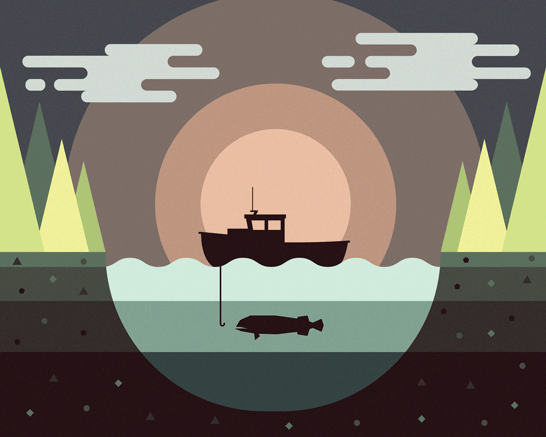Three Manitoban lakes have received criticism that they are comparable to some of the worst managed fisheries in the world. Seafood Watch, a California-based program that works to raise public awareness concerning sustainable sources of seafood, has asked consumers to avoid fish sourced from Lakes Manitoba, Winnipeg, and Winnipegosis.
SeaChoice, a program that collaborates with Seafood Watch, released a statement calling these lake fisheries “comparable to some of the most poorly managed fisheries in the world.”
The statement also blamed this rating on “lack of catch limits for some species, inadequate data, poorly regulated bycatch, non-enforceable multi-species quotas, and absence of harvest control rules.”
The three lakes targeted by Seafood Watch account for 81 per cent of the fish caught in Manitoba, and Manitoba’s commercial fishers are pushing back against the scathing remarks.
Kris Isfeld, a spokesperson for commercial fishers in Lake Winnipeg, told the Winnipeg Free Press that the Lake Winnipeg fishery “is one of the most successful, sustainable fisheries in the world.”
Isfeld also called eco-certification, a set of ethical regulations that improve sustainability for an aspect of the environment, a “load of crap.”
The intense response to Seafood Watch’s report is understandable. The commercial fishing industry produces $30 million in annual sales – with around 85 per cent of fish caught in the province being exported to the U.S. and Europe – which is good for the province’s economy.
It is also worth noting that Manitoba has also received positive recognition in the past for its fisheries. The Waterhen Lake fishery was the first freshwater fishery in Canada to earn eco-certification. The fishery received the certification from the Marine Stewardship Council for their northern pike and walleye fish in 2014.
The province of Manitoba has promised an in-depth review of the lakes in question. In a statement, Conservation and Water Stewardship Minister Tom Nevakshonoff promised to take action on Manitoban fishery sustainability, and issue a formal report in 2016.
“We agree with SeaChoice in that we need to take action on Lakes Winnipeg, Winnipegosis, and Manitoba by developing and implementing modern and comprehensive management plans in co-operation with the province’s commercial fishers.”
The review will no doubt come with some hard truths, however, as eco-certification for the lakes in question is a pipe dream at best at this time, with the costs to do so being estimated at around $250,000 just to certify Lake Winnipeg.
The review will enlist the help of economist Harold Westdal, who will work with the Lake Friendly Stewards Alliance, commercial fishing representatives, and First Nations stakeholders.

